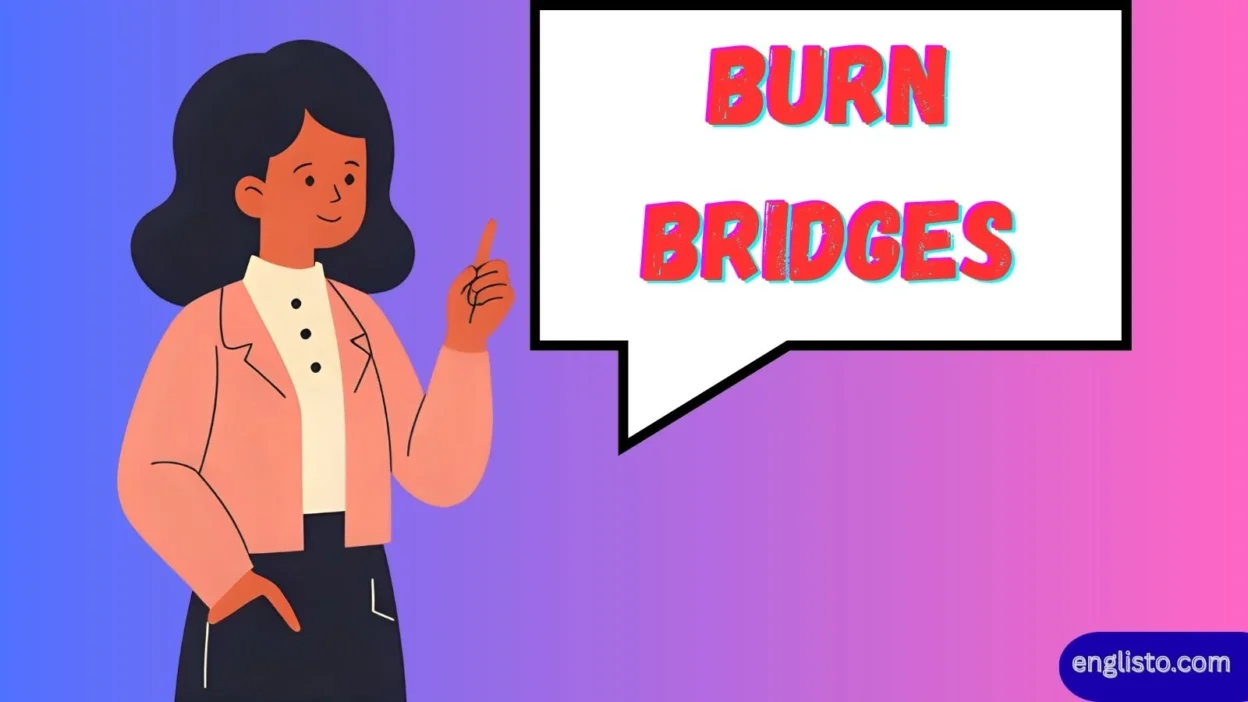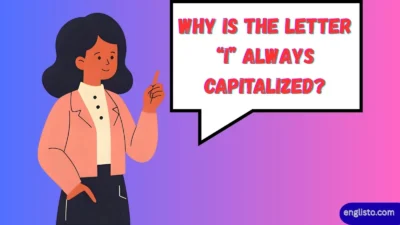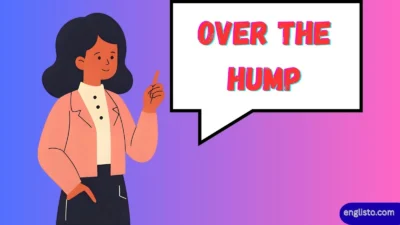Burning bridges is one of those phrases that paints a vivid picture in your mind. You can almost see the flames, smell the smoke, and feel the finality of it. But what does “burn bridges” actually mean, where did it come from, and how is it used today in workplaces, relationships, and everyday conversations? Let’s dive deep into the definition, origin, synonyms, examples, and cultural significance of this powerful metaphor.
What Does “Burn Bridges” Mean?
At its core, to burn bridges means to destroy a relationship, connection, or opportunity in such a way that you can’t go back. Once the bridge is gone, there’s no retreat, reconciliation, or turning back to the earlier situation.
- Dictionary definition (Collins COBUILD Advanced Learner’s):
“If you burn your bridges, you do something that makes it impossible to go back to the situation you were in before.” - Everyday meaning:
Ending things on bad terms with a person, company, or organization—so badly that the chance of working together again is eliminated.
👉 Example sentence:
“After stealing customer data and publicly criticizing his ex-employer, John burned his bridges with the company forever.”
Read More: “A” or “An” Before Words Starting With H? The Complete Grammar Guide
Origin and Historical Background
The phrase “burn bridges” has deep military roots. Historically, it was a wartime metaphor used to describe a tactic where an army would literally burn the bridges they crossed, leaving no possibility of retreat.
Famous Historical Examples
- Ancient Rome – Julius Caesar (49 B.C.)
When Caesar crossed the Rubicon River, he effectively burned his bridges with the Roman Senate. This was a point of no return, symbolizing irreversible commitment. - Spanish Conquest – Hernán Cortés (1519)
Cortés scuttled (destroyed) his ships upon reaching Mexico, ensuring his men had no choice but to fight forward. - Muslim Commander Tariq Ibn Ziyad (711 A.D.)
After landing in Spain via the Strait of Gibraltar, Tariq reportedly burned his ships, forcing his troops to march ahead decisively.
From these events, the phrase evolved into a figurative idiom, now widely used in British and American English.
“Burn Bridges” in Grammar and Usage
The phrase functions as an idiom and a phrasal verb. It inflects like a normal verb:
| Form | Example Sentence |
| Base | Don’t burn your bridges with old friends. |
| 3rd Person Singular | She burns bridges wherever she goes. |
| Present Participle | He’s always burning bridges at work. |
| Past Simple | They burned their bridges when they insulted the client. |
| Past Participle | He has burnt his bridges with the organization. |
👉 Note: In American English, burned is common, while in British English, burnt is also acceptable.
Synonyms and Related Expressions
Here are some useful synonyms and related idioms:
| Synonym/Idiom | Meaning |
| Cut ties | To end a relationship or connection. |
| Sever connections | Formal way of saying cut off completely. |
| Cross the Rubicon | Pass a point of no return. |
| Destroy one’s chances | Eliminate future opportunities. |
| Alienate someone | Push people away permanently. |
When Do People Burn Bridges?
The phrase pops up in many real-life situations. Let’s break them down:
At Work
- A laid-off worker angrily criticizes their ex-employer publicly.
- An employee steals company data and leaks it.
- A professional insults their boss or clients before quitting.
In Personal Life
- Ending a friendship in anger and refusing reconciliation.
- Speaking harsh words in a breakup that make return impossible.
- Quitting a group or community with unseemly comments.
In Business and Finance
- A startup founder burns bridges with investors by being dishonest.
- A venture capitalist ends ties with entrepreneurs over misconduct.
Positive vs. Negative Interpretations
Burning bridges usually carries a negative connotation—lost opportunities, damaged reputations, and destroyed trust.
But in some cases, it can be seen as positive:
- Quitting a toxic job without looking back.
- Walking away from destructive relationships.
- Making a decisive choice to move forward, free of the past.
Cultural Significance and Idiomatic Power
Why does the phrase resonate so strongly? Because it’s vivid. It paints a memorable image—once the bridge is gone, the path behind you doesn’t exist.
- In literature: Characters burn bridges to symbolize transformation or betrayal.
- In movies: Heroes sometimes “burn bridges” to show commitment to a new path.
- In everyday conversations: We use it to emphasize finality and irrevocability.
Examples in Sentences
- “She burned her bridges with the publishing company by insulting the authors’ team.”
- “Don’t burn bridges with your mentor—you may need guidance in the future.”
- “Sometimes burning bridges is the only way to force yourself forward.”
Practical Lessons: Should You Burn Bridges?
| Situation | Burning Bridges Outcome | Better Alternative |
| Quitting a job in anger | Ruined reputation, fewer opportunities | Leave politely, maintain connections |
| Ending a toxic friendship | Healthy detachment | Explain calmly, leave room for civility |
| Breaking business ties dishonorably | Industry-wide mistrust | Professional closure, written agreement |
| Closing doors on harmful habits | Can be good (forces change) | Reframe as “letting go” |
Real-Life Advice
- Refrain from rash choices. Burning bridges in anger often leads to regret.
- Think long-term. The future may bring unexpected opportunities where past connections could help.
- Use energy wisely. Don’t waste your ideas or effort on intemperance and controversy.
- Maintain professionalism. Even if frustrated, part ways gracefully.
Common Mistakes with the Idiom
- Taking it literally: It doesn’t mean destroying an actual bridge.
- Confusing with “building bridges”: Building bridges = creating connections, the opposite of burning them.
- Overusing it: Not every goodbye means burning a bridge; it must involve finality.
Quick Reference Table
| Feature | Burn Bridges |
| Part of speech | Idiom / Phrasal verb |
| Core meaning | End something permanently, no return |
| Tone | Often negative, sometimes empowering |
| Origin | Military strategy |
| Usage | Business, personal life, literature |
| Opposite | Build bridges |
FAQs
What does “burn bridges” mean in simple words?
It means ending something so completely that you can’t go back to it.
Is burning bridges always bad?
Not always—sometimes it’s good to leave behind toxic situations.
What’s the opposite of “burn bridges”?
“To build bridges,” meaning to create or repair connections.
Can you burn bridges unintentionally?
Yes. Sometimes careless words or actions damage relationships without intent.
Where did the phrase come from?
It originated as a military strategy where armies destroyed bridges to prevent retreat.
Conclusion
The idiom “burn bridges” carries both warning and wisdom. It teaches us that our actions—especially in moments of anger or frustration—can permanently change the future. Sometimes burning a bridge is necessary for growth, but often, it leaves us with regret and lost opportunities.
As the old saying goes:
👉 “Never burn bridges you may need to cross again.”



